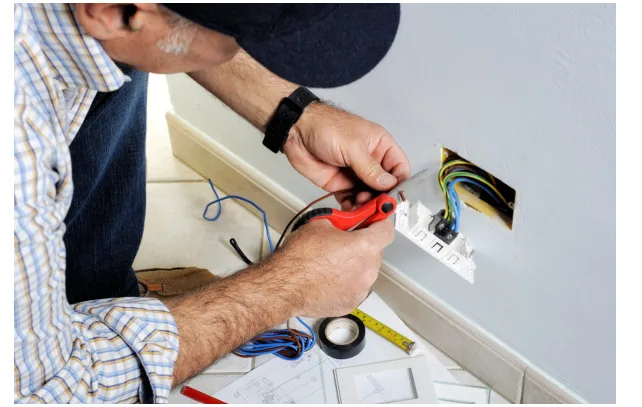Tie Rod Services vs. Traditional Waterproofing Which Delivers Long-Term Results
When homeowners in Massachusetts face issues with water seepage in their basements, two of the most common solutions are tie rod services and traditional waterproofing. Both methods aim to reduce or eliminate moisture infiltration, but they take very different approaches to solving the problem. Traditional waterproofing relies on sealing the foundation walls, applying drainage systems, and sometimes regrading the exterior soil to redirect water. Tie rod services, on the other hand, focus on repairing the foundation itself by addressing structural weak points caused by tie rod holes that exist in many poured concrete foundations.
Understanding these foundational differences is essential before comparing long-term results. Tie rod holes are common sources of leaks because they create intentional weak spots in the foundation when poured. Over time, these holes become vulnerable to water intrusion. Traditional waterproofing addresses surface-level moisture concerns, while tie rod services directly treat the entry points where water finds its way inside.
The Role of Tie Rod Services in Massachusetts
Tie rod services in Massachusetts have grown in popularity as more homeowners recognize the unique challenges posed by the region’s climate and soil conditions. Massachusetts basements often face high groundwater levels, heavy rainfall, and seasonal freezing and thawing cycles. These conditions put immense pressure on foundation walls, especially around tie rod holes.
Specialized tie rod services use epoxy injections, hydraulic cement, or advanced sealing compounds designed to permanently block these holes. Unlike coatings or membranes applied to the outside of the foundation, this method stops water at its exact point of entry. Because Massachusetts homes often rely on basements as functional living or storage spaces, the demand for precise, long-lasting solutions has made tie rod services a preferred choice among many local contractors.
What sets tie rod services apart is their targeted effectiveness. Instead of waterproofing an entire wall in hopes of preventing future leaks, technicians can pinpoint problem areas and resolve them directly. For homeowners in older neighborhoods where foundations were poured decades ago, this can mean the difference between temporary relief and long-term peace of mind.
Traditional Waterproofing: Strengths and Weaknesses
Traditional waterproofing has long been the go-to solution for wet basements. Methods include exterior excavation to install waterproof membranes, interior French drains, sump pumps, and wall coatings. These strategies work well in certain situations, especially when water is entering through cracks, porous concrete, or poor grading around the home. They create a system for managing water rather than stopping it entirely at its entry point.
However, traditional waterproofing does come with limitations. Exterior excavation can be extremely costly and disruptive, often requiring removal of landscaping, patios, or driveways. Interior systems such as French drains and sump pumps are highly effective at redirecting water but do not eliminate the underlying leaks. Instead, they accept water will enter and focus on channeling it away. For homeowners in Massachusetts where freezing winters can place additional stress on systems, these solutions may require ongoing maintenance and monitoring.
While traditional waterproofing is beneficial in certain contexts, its reliance on broad solutions may not always provide the direct, permanent results offered by tie rod services. A homeowner dealing specifically with tie rod leaks may find themselves overpaying for large-scale waterproofing systems that do not target the real issue.
Long-Term Results: Comparing Performance
The true measure of any waterproofing method is how it performs over time. Tie rod services are often considered a permanent fix because they treat the source of the leak itself. Once a tie rod hole has been properly sealed with professional-grade materials, it is highly unlikely to reopen. This makes the service particularly attractive to Massachusetts homeowners who want to invest in one solution rather than revisiting the problem year after year.
Traditional waterproofing methods may deliver good results initially but often require ongoing maintenance. Sump pumps need testing and eventual replacement. French drains can clog and demand cleaning. Exterior membranes can deteriorate after years of exposure to soil and moisture. These recurring maintenance needs translate into higher costs and more frequent disruptions.
From a cost-benefit perspective, tie rod services usually win out when the problem is clearly identified as tie rod leaks. They deliver precise, permanent solutions without the need for continuous upkeep. However, if a basement has multiple water entry points not related to tie rods, then traditional waterproofing may still play a necessary role in managing the larger issue.
Making the Right Choice for Massachusetts Homes
Choosing between tie rod services and traditional waterproofing depends on the nature of the problem and the homeowner’s goals. For Massachusetts residents, the regional climate makes it especially important to consider long-term resilience. Heavy snow melts, nor’easters, and fluctuating groundwater levels create challenges that test any waterproofing system. Homeowners who experience leaks concentrated around tie rod holes are best served by professional tie rod services in Massachusetts. These treatments offer the most direct and lasting solution to a very common problem in poured concrete foundations.
For homeowners dealing with broader issues such as hydrostatic pressure, floor cracks, or exterior drainage concerns, traditional waterproofing may still be the appropriate path. In some cases, a hybrid approach is necessary, where tie rod holes are sealed while drainage systems are installed to manage additional water. A professional assessment can help determine the right balance, but the clear advantage of tie rod services lies in their ability to eliminate leaks at their root.
Conclusion
When weighing tie rod services against traditional waterproofing, the most important factor is long-term effectiveness. Tie rod services in Massachusetts provide targeted, permanent results for one of the most common sources of basement leaks. They address the problem at its source, ensuring that homeowners can enjoy dry, functional basements without ongoing maintenance costs. Traditional waterproofing still plays a role in broader moisture management, but its reliance on ongoing upkeep makes it less appealing for those seeking permanent solutions.
Massachusetts homeowners facing water intrusion should carefully evaluate their specific foundation issues. If tie rod holes are the primary culprit, investing in tie rod services delivers the best long-term protection. For wider water management needs, traditional waterproofing may be necessary, but the advantages of a permanent, one-time repair often make tie rod services the smarter investment for lasting results.





